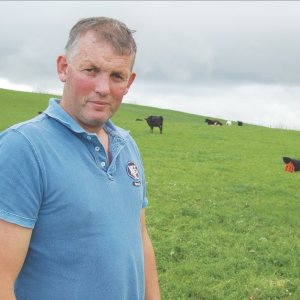Federated Farmers Waikato president James Houghton says Primary Industries Minister David Carter should get the warring parties together.
The current funding arrangement where regional councils charge a rate on rural properties for TB control is working well, he says.
“So, I’m disappointed. I mean if it’s not broken why fix it?” he said to Dairy News.
“We have until June next year to find a solution and I think the MPI should get both parties to the table.”
WRC is to stop collecting $825,000 on behalf of the AHB from July 2013 as the farmer contribution to the region’s $6.5 million TB control programme. It wants the AHB to collect directly from farmers. Houghton says he believes 11 other regional councils also favour the WRC’s stance.
But AHB chief executive William McCook says the time is not right to tamper with TB control funding in the region.
“Extensive areas of the region still have TB in wildlife which continues to pose a threat. Now is not the time to be relaxing our control work, or we risk repeating the scenario that saw cattle and deer herd infections rise exponentially in the 1980s and 1990s.”
Last year’s draft annual plan consultation in Waikato identified strong support for continued funding of the AHB’s TB control.
Surety of funding to allow operations and work to be planned effectively is vital, McCook says.
“The proposal to cease funding at the end of the next financial year could have an impact on efforts to eradicate the disease from New Zealand should an alternative mechanism not be found.”
WRC biosecurity and natural heritage group manager John Simmons says the TB control programme is a national strategy and not aligned with its regional priority. The council plans to increase its pest control budget by $400,000 from next year but will deal with regional priorities.
Simmons says the AHB can go directly to farmers for TB control funding.
“We have agreed to collect funds on their behalf for another year so they have enough time to introduce a levy for Waikato region as they do in Otago.”
Simmons says the council is also concerned about how the money is spent by AHB. “Our regional contribution is not justified. At the same time the levy rises every year,” he says.
















